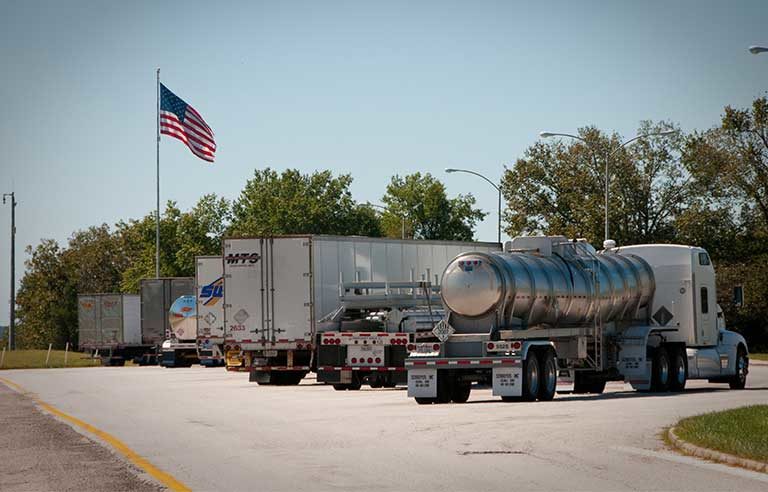Senators introduce bipartisan bill on safe truck parking

Washington — Bipartisan legislation recently introduced in the Senate would help address a nationwide shortage of safe truck parking by authorizing funding to increase parking capacity and improve existing infrastructure.
Federal hours-of-service regulations require truck drivers to park and rest after being on duty for long periods. A lack of safe places for truckers to park ranked third on the American Transportation Research Institute’s list of top trucking industry concerns, released in October.
The Truck Parking Safety Improvement Act (S. 5169), introduced Dec. 1 by Sens. Cynthia Lummis (R-WY) and Mark Kelly (D-AZ), would permit the transportation secretary to issue grants for projects that provide truck parking, including $175 million for fiscal year 2023 and a combined $580 million over the next three fiscal years.
Entities eligible for the grants would be:
- States
- Metropolitan planning organizations
- Local governments
- Agencies of states or local governments “carrying out responsibilities relating to commercial motor vehicle parking”
- Tribal governments or a consortium of tribal governments
- Multistate or multijurisdictional groups
Grantees would be permitted to partner with private entities “to carry out an eligible project.”
The legislation is a companion bill to H.R. 2187, sponsored by Rep. Mike Bost (R-IL) and introduced in the House in March 2021. A vote on the House floor hasn’t yet been scheduled after the chamber’s Transportation Infrastructure Committee approved an updated version of the bill in July.
Post a comment to this article
Safety+Health welcomes comments that promote respectful dialogue. Please stay on topic. Comments that contain personal attacks, profanity or abusive language – or those aggressively promoting products or services – will be removed. We reserve the right to determine which comments violate our comment policy. (Anonymous comments are welcome; merely skip the “name” field in the comment box. An email address is required but will not be included with your comment.)

